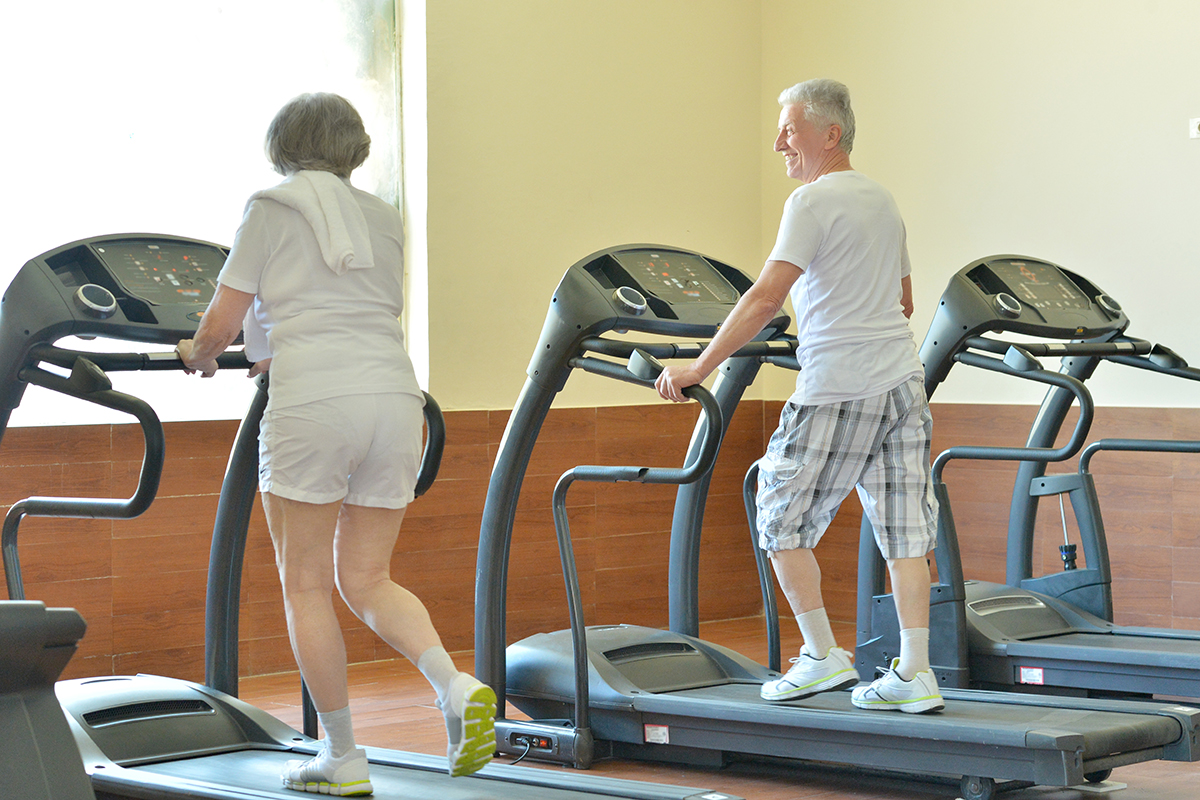Cardio May Help Boost Memory in Older Adults

Senior couple on treadmills image via shutterstock
Some people go for a run or hop on the elliptical in order to “clear their head.” Now, a new study by Boston University School of Medicine (BUSM) researchers found that these activities may actually “fill your head” instead. That’s because cardio and memory were found to be related when it comes to older adults.
The study, which appears online in the Journal of Gerontology, looked at the relationship between cardiorespiratory fitness and memory and cognition, and found that “older adults who have greater heart and lung health also have better memory recall and cognitive capabilities.”
According to BUSM:
Researchers compared 33 young adults (age 18-31) and 27 older adults (age 55-82) with a wide range of cardiorespiratory levels. Participants completed exercise testing to evaluate their cardiorespiratory function and neuropsychological testing to assess their memory, planning and problem-solving abilities. In addition to standardized neuropsychological tasks of executive function and long-term memory, participants engaged in a laboratory task in which they had to learn face-name associations.
Surprisingly, older adults who had high cardiorespiratory levels performed just as well as the young adults on executive function measures. But, when it came to long-term memory, young adults performed better than older adults, even those who were considered “fit.” The “fit” older adults did perform better than the “low fit” older adults, though.
The study found, basically, that when it comes to older adults, the better the physical fitness level, the better executive function and memory. When it comes to young adults, however, fitness levels did not have an effect on memory or executive functions.
“Our findings that CRF may mitigate age-related cognitive decline is appealing for a variety of reasons, including that aerobic activities to enhance CRF are inexpensive, accessible, and could potentially improve quality of life by delaying cognitive decline and prolonging independent function,” says the study’s corresponding author Scott Haynes, an assistant professor of psychiatry at Boston University School of Medicine and the associate director of the Neuroimaging Research for Veterans Center at the VA Boston Healthcare System.
The bottom line? Cardio is good for the mind and the body.


